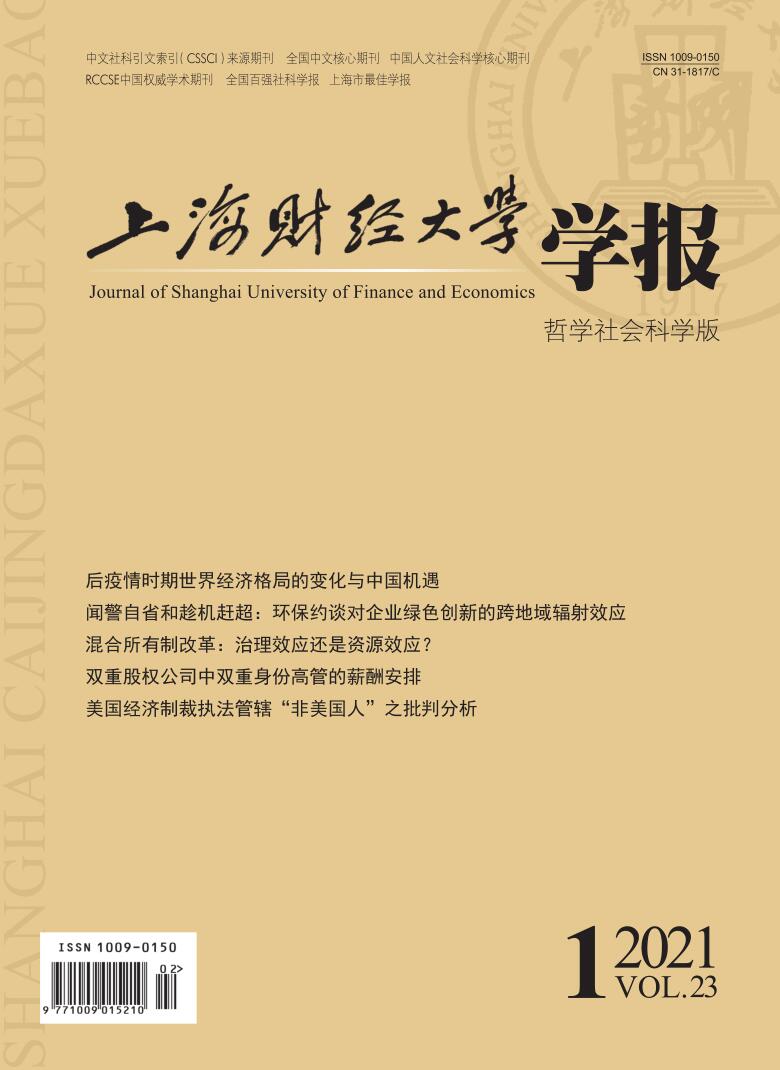It took 15 years for the WTO to make a ruling on the case between the United States and the European Union to sue each other for subsidies to large civil aircraft, which concluded that both sides had implemented illegal subsidies to their respective large aircraft industries. This case shows that in the fields where national competition and commercial competition are intertwined, especially in the strategic industries related to national security, even the jurisdictional authorities who highly believe in free market competition do not play the role of a night watchman sticking to competition neutrality. The efficiency and welfare generated by competition in the international market may not only benefit the world, but also have strong national-state attributes and political interests. It may be regarded as a rational policy choice related to national interests and political correctness to devote one country’s efforts to build local enterprises into “national champions” and help them defeat foreign rivals in industries of great strategic significance. As an anti-subsidy relief platform widely accepted by the world’s major economies, the WTO plays a key role in maintaining the competitiveness of the global market, but its position in the international competition neutrality regulation system is at risk of being marginalized. The international competition neutrality regulation system has a tendency to legalize domestically, and the concept of state-owned enterprises has a tendency to generalize to state-supported enterprises. As far as China is concerned, maintaining and implementing competition neutrality in the international and domestic markets is the product of reforms forced by external pressures, and it is also an inherent need for China to actively expand opening up and accelerate the construction of a new higher-level open economic system. China should make competition neutrality the core content of its competition policy, take into account the construction of soft competition law and hard competition law, and break down the barriers that restrict the common development and fair competition of various market entities. However, when a certain type of enterprise is the most preferred among various carrier tools to achieve specific important value goals of the country, it can be considered to be exempt from competition neutrality regulations. In principle, China’s competition neutrality system should be compatible with its own control and endurance, meet the needs of maximizing the country’s overall interests, and enhance policy transparency and procedural legitimacy. The mechanism of bilateral or regional trade agreements and the anchoring mechanism of deeply embedded and integrated Chinese and foreign economies may be helpful to control and balance the risks of international competition neutrality regulations.
 / Journals / Journal of Shanghai University of Finance and Economics
/ Journals / Journal of Shanghai University of Finance and EconomicsJournal of Shanghai University of Finance and Economics
LiuYuanchun, Editor-in-Chief
ZhengChunrong, Vice Executive Editor-in-Chief
GuoChanglin YanJinqiang WangWenbin WuWenfang, Vice Editor-in-Chief
Evolution of International Competition Neutrality Regulations and China’s Reaction: With Reference to the Large Civil Aircraft Subsidy Disputes between the US and the EU
Journal of Shanghai University of Finance and Economics Vol. 23, Issue 01, pp. 138 - 152 (2021) DOI:10.16538/j.cnki.jsufe.2021.01.010
Summary
References
Summary
Keywords
Cite this article
Li Junfeng. Evolution of International Competition Neutrality Regulations and China’s Reaction: With Reference to the Large Civil Aircraft Subsidy Disputes between the US and the EU[J]. Journal of Shanghai University of Finance and Economics, 2021, 23(1): 138-152.
Export Citations as:
For
ISSUE COVER
RELATED ARTICLES




 5163
5163  9267
9267

